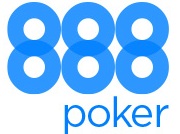In a brick-and-mortar poker room, a player is not allowed to be in more than one game at a time. The beauty of the online poker world is that playing multiple games at once is permitted! When playing Hold ’em, a player will usually see at least 100 hands per hour per table. Two hundred, 300, 400, or more hands per hour are possible with the multiple table option. But how do you make this work? The normal way to do it is for the player to toggle back and forth between tables, because at the monitor’s default resolution a table takes up the entire screen. The problem is that it is very easy to lose track as to which table is in the active window! More than once we’ve acted on the wrong game, folding strong hands or calling with junk. It’s a truly disgusting feeling, believe us.
A good way to avoid this is to increase the resolution of your screen to the maximum, which you can do by clicking on Start, Control Panel, Display, and finally clicking the appropriate tab for the resolution. Move the slide bar all the way to the right for maximum resolution. The effect will be to make the image smaller, allowing you to fit two or more games on the screen without them overlapping. Another trick is to set up your system so you can use two monitors from the same computer. The games will be full screen, and you’ll be able to play them using a single mouse. Be aware that there are limits on how many games you may play at any one site at the same time. The way around this is to log on to a second card room and play there as well.
TIP: When playing multiple games, be certain you’re acting on the correct game! Don’t accidentally fold your winners and call or raise with your losers because you lost track of which game was “active.” Be aware: When it is your turn to act on a game, that window will automatically become your active window. You could be just about to click your action on one game, only to have the screen switch on you in mid-click! We recommend strongly that you increase your screen resolution in order to keep your games obviously distinct.
All-Ins and Disconnections
Sometimes we all come to a point where we run out of money partway through a hand, where we get disconnected because the leprechaun in the computer temporarily runs out of magic Internet dust, or maybe the power goes out. In this case, an “all-in” situation arises. If you have been able to meet any of the action in the hand, you are eligible to win that much from each of your opponents, as we mentioned in our earlier discussion of “table stakes.”
For example, you are playing $2–$4 Hold ’em and have $10 at the start of the hand. You have A♠A♥ and raise the bet to $4 before the flop. Three other players call. The flop is A♣A♦7♠. Bingo! You’re a winner, unless something truly traumatic happens (FYI: the only way you could lose this hand is if someone hits “perfect perfect” to make a Royal Flush of clubs or diamonds or a straight flush using the 7♠). Let’s say that for some reason two other players are feeling extraordinarily lucky. One bets $2, one player folds, and the other calls. You call as well. On the turn, the 7♦ shows up! The first player bets $4, and the second player raises (meaning both likely have a 7, which is a moronic play because all you need is a single Ace to have a better full house, but just play along for a minute). You want to raise but, guess what, you can’t. Of your $10, you committed $4 of it before the flop and $2 on the flop, which means that on the turn you have only $4 left. All you can do is click the Call–All In button that will appear. You will then need to wait for the other two players to fight it out for the remainder of the hand. You are not eligible to win any additional bets, and that money is used to make a “side pot.” When the showdown occurs, the two players in the side pot will see who wins that money, and then the winning hand (or hands, in the case of a tie) will be compared to yours. You have four Aces, so you’ll get the “main pot.” Not bad, but with the way the betting was going it could have been more. Lesson: Keep enough on the table to maximize winning hands! Minimize losing hands through knowing when to fold, etc. Another way to become all-in is through your connection to the site server going down. The site server will notice you’ve become disconnected and will wait until you have run out of time to act. At that point, you will be treated as all-in and will only be eligible to win as much as you’ve already put in the pot from each of the other players, as in the previous example. Be forewarned: There is a limit per day (usually two) of how many times you may become all-in as a result of becoming disconnected. After that, your hand is FOLDED. This is to ensure an enjoyable playing environment for the other players by removing the frustration of having a player with a bad connection constantly being all-in. In the past, players would simply let their time to act expire and the site would put them all-in. What would happen is, players would use the rule to their advantage by staying in the hand without needing to risk additional money. To correct this loophole, the sites have instituted a rule that if your computer is connected to the site when you time out, your hand will be folded. We believe they can also tell when you intentionally disconnect your machine, so be aware of that as well.
Assuming you have used all of your allotted all-ins, you will need to click on the dealer’s chip tray and request an all-in reset, which is usually granted. Should you miss three big blinds while you are disconnected, you will be “picked up” from the table. Your chips will be placed back into your account for your use the next time you enter the site.
Chat
Many people enjoy poker as a social event, and online poker gives you the chance to communicate with other players through a chat function. The chat bar is found near the bottom of the screen and may be turned off if you wish. Chatting at an online table has many of the same characteristics as at a physical table: Most players carry on small talk, or talk about the hand (nh= nice hand, ty= thank you, gl= good luck, for example). Others like to try to put other players on tilt by making fun of the rest of the table when they win a hand. Some solid players can’t stand it when someone makes a low-percentage play and gets lucky, winning the pot. Instead of just letting the player happily contemplate their win, they feel compelled to tap the glass and tell them what a bad player they are. This is a terrible idea because many bad players are playing for fun, and if they are berated, they’ll take their “dead money” to another table. You WANT these players at your table; you NEED these players at your table. Just grit your teeth and give ’em an insincere “nice hand.”
There are two big No
Nos regarding the chat bar. First, all chat must be in English. This is somewhat unfair to folks from non–English-speaking countries, but it is a rule. So those of us for whom English is our first language benefit greatly. Of course, it also becomes obvious that a lot of folks speak (type) some pretty darn good English. Good thing we don’t have to chat in German or French! Second, while some witty banter is allowed on the chat bar, you can get in trouble for being outright abusive. Calling someone a moron or cursing may be grounds for a complaint and for revocation of chatting privileges. Remember, everything that happens on the site is recorded, so it’s not like being in a physical card room where you may be able to say something without anyone hearing you. If you type it, it can be retrieved from the server. So if you’re an a**hole, be assured you’ll get nailed eventually.
Summary
This chapter has gone over the mechanics of play as far as the different options with which you will be presented as you get in the game. After a couple of sessions, they will be familiar; after a couple of weeks, they will be second nature. Playing multiple tables is a great way to leverage an advantage, but be sure you’re on the correct table when you act. Pay attention to how many all-ins you have left if your connection has been spotty or if the power keeps blinking. When chatting, please use common courtesy!










